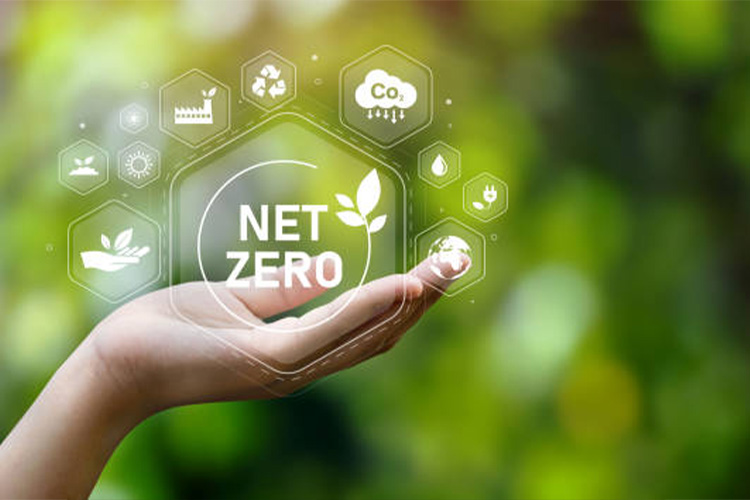

As Dubai gears up to host COP 28 later this year, REM Times talks to industry experts to gauge the steps that their organisations are taking towards being net-zero
July 10, 2023 | Deepa Natarajan Lobo | UAE | Facilities Management

Real estate is booming in the UAE and across the globe, like never before. With more and more innovations in designs and advancements in technology to speed up the process of construction, the world is getting increasingly filled with dazzlingly beautiful commercial and residential buildings that cater to the needs of the urban crowd.
However, as a saying goes, “there are two sides to every coin”. As the earth gets dotted with record-breaking skyscrapers, there is no denying the hazardous impact of these structures on the environment. In fact, as per reports, the real estate sector is responsible for as much as 40 per cent of all greenhouse gas emissions. Of this, 30 per cent come from construction while around 70 per cent comes from the building operations.
With such disturbing figures glaring us in the eye, the need of the hour is to go green and ensure that sustainability seeps through every aspect of real estate - right from the materials used for construction purposes to the strategies devised for energy efficiency. Moreover, the UAE is one of the first and largest countries in the world to invest in clean energy projects. As Dubai gears up to host COP 28 later this year, REM Times speaks to a leading service provider and a community association manager to get their take on carbon neutrality and gauge the steps that their organisations are taking towards being net zero in their initiatives.
According to Muna AlNahdi, Head of Consultancy & Sustainability at the leading facilities management company Farnek, sustainability plays an important role in all of the company’s corporate, strategic and business operations. “We have embedded sustainability throughout our standard FM processes. Energy management, waste management and carbon management are intrinsic to our operations and FM contracts. Our green supply chain programme promotes sustainable practices and supplier alignment with ESG principles, reducing supply chain emissions and fostering a more sustainable value chain.” She further adds, “As part of our commitment to sustainability, we provide training and conduct awareness sessions for our workforce and the community, cultivating a culture of sustainability among our employees and stakeholders.”
Farnek’s comprehensive approach towards zero carbon includes providing end-to-end net-zero solutions, from planning and executing carbon reduction measures to monitoring and verifying progress. The company also partners with customers and aspires for carbon neutrality for the properties it manages. “With our net-zero consultants and energy experts and solutions, we help clients develop strategies and implementation roadmaps,” informs Muna.
On being asked about the strategies formulated by the company towards attaining net-zero, she refers to CARBONTEK, a carbon management tool that enables businesses to accurately measure, analyse, and identify emission hotspots in their activities and products. “Data collection, analysis, and reporting pose significant challenges in net-zero planning. CARBONTEK supports businesses in categorising emission sources and developing strategies to reduce emissions and operational costs effectively,” she notes.
Muna further informs to accelerate the transition to net-zero, Farnek has integrated sustainability, energy, and carbon expertise with technology. This involves digitalising conventional processes to enhance efficiency, productivity, and sustainability. “For instance, we have developed the Smart Fleet Management System for optimising routes, and we utilise the PowerTek power management system to monitor energy, water, waste and carbon emissions,” she sums up.
The power of the community
With the UAE taking major steps towards achieving net-zero carbon emissions by 2050 and being the first country in the MENA region to do so, it’s highly necessary that citizens too play an important role with their individual actions instead of relying solely on the authorities. Here, the power of community management can really make a difference, believes Amrita Choudhury, Community Manager at Better Communities. “Organising community events such as seminars/webinars to spread awareness about reducing carbon footprint through achievable steps such as transportation optimisation and changing food habits (reducing waste and using reusable containers) can go a long way,” she notes. Some of the other steps can include rewarding residents who are the most eco-friendly in their habits; observing Earth Hour, plantation day; handing out community handbooks, weekly newsletters and quarterly/annual reports etc. “These steps will educate the masses on the reduction of Co2 emissions and make them aware of the simple steps they can take towards energy conservation such as unplugging appliances, turning off lights, setting thermostat appropriately, switching to incandescent lights etc,” advises Amrita.
Community improvement programmes that engage auditors to achieve energy efficiency and publish residential energy audits and increase community renewable energy production or consumption (like solar projects) could also be looked at. Although there are some challenges like inconsistent result visibility (when the results are not immediate and the community gets demotivated) and budgetary/financial limitations when it comes to retrofitting strategies or engaging auditors for energy efficiency, Amrita feels that consistent management will develop seriousness and willingness among the residents. “Additional revenue generating programmes and spreading the modification/retrofitting works over a period will have minimal impacts on budgets. A special committee can also be formed among residents to monitor and assist with carbon reduction,” she concludes.